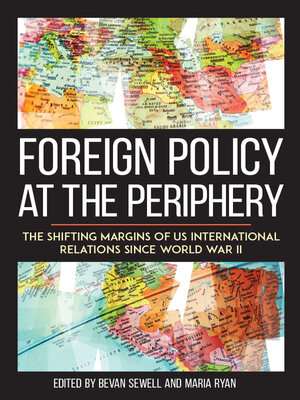Foreign Policy at the Periphery
ebook ∣ The Shifting Margins of US International Relations Since World War II · Studies in Conflict, Diplomacy, and Peace
By Bevan Sewell

Sign up to save your library
With an OverDrive account, you can save your favorite libraries for at-a-glance information about availability. Find out more about OverDrive accounts.
Find this title in Libby, the library reading app by OverDrive.



Search for a digital library with this title
Title found at these libraries:
| Library Name | Distance |
|---|---|
| Loading... |
As American interests assumed global proportions after 1945, policy makers were faced with the challenge of prioritizing various regions and determining the extent to which the United States was prepared to defend and support them. Superpowers and developing nations soon became inextricably linked and decolonizing states such as Vietnam, India, and Egypt assumed a central role in the ideological struggle between the United States and the Soviet Union. As the twentieth century came to an end, many of the challenges of the Cold War became even more complex as the Soviet Union collapsed and new threats arose.
Featuring original essays by leading scholars, Foreign Policy at the Periphery examines relationships among new nations and the United States from the end of the Second World War through the global war on terror. Rather than reassessing familiar flashpoints of US foreign policy, the contributors explore neglected but significant developments such as the efforts of evangelical missionaries in the Congo, the 1958 stabilization agreement with Argentina, Henry Kissinger's policies toward Latin America during the 1970s, and the financing of terrorism in Libya via petrodollars. Blending new, internationalist approaches to diplomatic history with newly released archival materials, Foreign Policy at the Periphery brings together diverse strands of scholarship to address compelling issues in modern world history.







